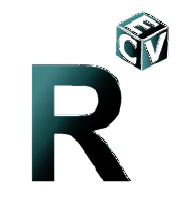R3 introduces Corda distributed ledger
 Richard G. Brown, CTO of the financial innovation firm R3, confirmed Tuesday in a corporate blog post that the company and its member banks are collaborating on a distributed ledger platform for financial services called Corda.
Richard G. Brown, CTO of the financial innovation firm R3, confirmed Tuesday in a corporate blog post that the company and its member banks are collaborating on a distributed ledger platform for financial services called Corda.
Designed to record, manage and synchronize financial agreements between regulated financial institutions, Corda is strongly inspired by and encompasses the benefits of blockchain systems, but doesn’t possess the functions that make blockchains not appropriate for many banking scenarios.
As listed in the blog post, Corda’s key features include:
- no unnecessary international sharing of data, with only those parties with a legitimate need to know can see the information within an agreement;
- navigating workflow between firms without a central controller;
- achieving consensus between firms at the of individual-deal level, not at the system level;
- directly enabling regulatory and supervisory observer nodes;
- transaction validation by parties to the transaction, not by a wide pool of unrelated validators;
- supporting a range of consensus mechanisms;
- recording an explicit link between human-language legal prose documents and smart contract code;
- built on industry standards; and
- no native cryptocurrency.
In the blog post, Brown stresses that R3 is not creating a blockchain. Unlike other designs in the distributed ledger sector, the firm’s starting point is individual agreements between firms. It does not subscribe to the concept that all data should be copied to all participants, even if the data is encrypted.
“A critical piece of the Cordia philosophy is that our problem is to ensure that ‘I know that you see the same details about a shared fact that I see.’ But this does not mean that a third party down the road also needs to see it: our consensus occurs between parties to deals, not between all participants,” writes Brown.
Bloomberg reports that R3’s approach can be seen in Corda’s name. It comes from two sources, said Brown to the news outlet. The first, he said, sounds like “accord,” while the second comes from the definition of a chord, which is the shortest straight line between two points on a circle. In this instance, Brown said, the circle represents the banks that make up the R3 consortium.
“We talk about connecting peers,” said Brown to Bloomberg. “We have direct point-to-point connections” that will significantly limit the amount of data shared between banks and asset managers, he said.
The company also takes into the account the reality of managing financial agreements. “We need more than just a consensus system,” writes Brown. “We need to make it easy to write business logical and integrate with existing code; we need to focus on interoperability. And we need to support the choreography between firms as they build up their agreements.”
R3 does not consider Corda a universal solution. “This model is extremely powerful for some use-cases but likely to be less well suited to others,” Brown writes. “It’s why we continue to engage extremely deeply with all our partners who are working on complementary platforms in this space; we are not omniscient. Moreover, there are still many significant design and research questions we have to resolve: there is still a great deal of work to do.”
Brown told Bloomberg that member banks have spurred much of the decision making in the area of how to keep confidential data safe. Only “the absolute minimum amount of information that needs to be shard with the collective to ensure I haven’t done the same transaction before” will be sent, he said. “The work has begun.”
Image via a previous R3 press release












